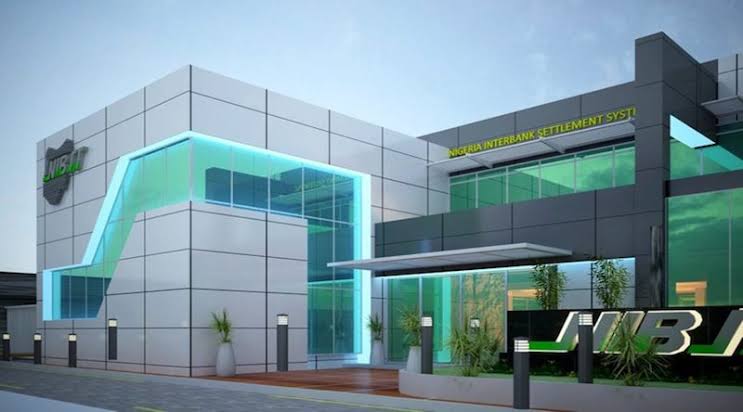Business
INTRIGUE: NIBSS Champions Gang-Up Against Non-Deposit Operators

. . . Top Casualties Are Interswitch, Flutterwave, Remita, Moniepoint, eTranzact, Paystack
The money transfer system in Nigeria is in for a jolt, with the Nigeria Inter-Bank Settlement System (NIBSS), invoking a February 2014 directive of the Central Bank of Nigeria (CBN) to order Deposit Money Banks (DMB) to delist non-deposit-taking financial institutions from transfer lists.
Any business not licensed to hold money by the CBN would fall into the bucket of those to be delisted.
The NIBSS in a directive to the DMBs on this maintained that offering non-deposit-taking businesses unlimited participation in the money transfer market would amount to flouting the CBN’s guidelines on electronic payment of salaries, pensions, suppliers, and taxes in Nigeria dated February 2014.
The NIBSS passed the directive in a circular to DMBs, merchant banks, switches, mobile money operators, and other financial institutions.
It averred that financial institutions that are not permitted to hold money (non-deposit financial institutions) are to be removed to the list of NIBSS Instant Payment (NIP) Outwards System.
The non-deposit institutions listed are switches, Payment Solution Service Providers (PSSPs) and super agents.
The NIPSS explained they the non-deposit financial institutions can process outward transfers as inflows to banks, but cannot receive inflows because that would be breaching the licenses given to them by the CBN.
Specifically, their licenses do not permit them to hold customers’ funds.
The directive clarified that while the PSSPs remained payment gateways, they should not be on the NIP outward list being not licensed to hold deposits.
The NIBBS noted that the CBN guidelines on electronic payment of February 2014, stipulated the roles and responsibilities of various stakeholders involved in the end-to-end electronic payment process.
The guideline spelt out different roles for paying organisations, payment beneficiaries, DMBs, other financial institutions, PSPs, transaction switching companies, and regulatory authorities.
It is noteworthy that the new licence categorisation for Nigerian payments systems issued by the CBN on December 9, 2020, set out the new licensing framework in four broad categories.
They are, Switching and Processing; Mobile Money Operators (MMO); Payment solution service (PSS); and Regulatory sandbox.
Out of these four categories, only MMOs were, by the CBN’s guidelines allowed to hold customer funds.
Going by the directive, notable businesses which would be affected include, Interswitch, Flutterwave, Remita, Moniepoint, eTranzact, and Paystack.
Others include ChamsSwitch, Terra Switching and Processing, Appzone, Arca Payments Company, Coralpay, Habaripay, Hydrogen Payment Services, Network International, Unified Payment Services, and Xpress Payment Solutions.
Business
Savannah Energy Provides Unaudited FY 2024 Trading Updates

Savannah Energy has shared a trading update on its Nigerian operations and other markets in Africa, including up-to-date cash collections in its Nigerian business.
According to the update, made available on Thursday in Lagos, its gross production in Nigeria averaged 23.1 Kboepd for FY 2024, broadly in line with the prior year’s 23.6 Kboepd, of which 88% was gas (FY 2023: 91%).
On the update, CEO of Savannah Energy, Andrew Knott, said, “I am pleased to provide a FY trading update which demonstrates the continued progress we have made in 2024, a year which saw the highest level of cash collections ever recorded by our Nigerian business. 2025 is expected to be an exciting year for our Company: we have a large planned operational programme in Nigeria which is anticipated to enhance both our oil and gas production levels and capacity; we intend to progress our R3 East oil development project in Niger; we continue to pursue key acquisitions in the upstream oil and gas space; and we continue to seek to build our power business.
“Fundamentally, Savannah remains unequivocally an “AND” company, seeking to deliver strong performance both for the short AND long term across multiple fronts, and pursuing growth opportunities in both the hydrocarbon AND power sectors.”
The update It also shows that it generated a Total Income of US$393.6 million in 2024, compared to FY 2023’s US$289.8 million. This consists of Total Revenues of US$258.7 million and Other operating income of US$134.9 million.
The report also shows that Savannah’s FY 2024 Total Revenues were ahead of the previously issued financial guidance of greater than US$245 million, while FY 2024 financial guidance is reiterated for Operating expenses plus administrative expenses at ‘up to US$75 million’. The company expects its FY 2024 capital expenditure to come in lower than planned (previously guided at ‘up to US$50 million’) due to the phasing of spend.
ALSO READ: CSR: Dangote Awards Scholarships To 473 Students
According to the update, Savannah’s cash collections in 2024 amounted to US$248.5 million, a slight increase from the US$206 million it received in 2023. The report further shows that its cash balances as at 31 December 2024 stood at US$32.6 million, compared to the 31 December 2023 figure of US$107.0 million.
The report shows that the company’s midstream subsidiary, Accugas Limited, had as at 31 December 2024 drawn down on its NGN332 billion of the NGN Transitional Facility, with the resulting funds being converted to US$, which, along with cash held, was used to partially prepay the existing Accugas US$ Facility, leaving a balance as at 31 December 2024 of approximately US$212.3 million.
The report also provided new updates on Accugas’ US$45 million Uquo Central Processing Facility (“Uquo CPF”) compression project in Nigeria, noting that its commissioning which will enable the expansion of gas production in the medium term is well underway.
The report highlighted the progress being made in the procurement process of long lead equipment in Nigeria for a potential two-well drilling campaign on the Uquo Field in H2 2025, with an additional gas development well expected to add up to 80 MMscfpd of supplemental production capacity and a potential exploration well targeting an Unrisked Gross gas initially in place (“GIIP”) of 154 Bscf (25.7 MMboe) of incremental gas resources.
The update shows that progress is also being made in the planned Savannah acquisition of Sinopec International Petroleum Exploration and Production Company Nigeria Limited, whose principal asset is a 49% non-operated interest in the Stubb Creek oil and gas field (“Stubb Creek”), with regulatory approval and completion being targeted in Q1 2025. Following the completion of the acquisition, Savannah intends to commence an expansion programme which is anticipated to increase Stubb Creek gross production from an average of 2.7 Kbopd in 2024 to approximately 4.7 Kbopd.
In Niger, Savannah continues to seek to progress its 35 MMstb (Gross 2C Resources) R3 East oil development in South-East Niger, while it continues to push for a potential alternative transaction structure to acquire a material stake in producing oil and gas assets in South Sudan as previously announced on 20 December 2024.
On the renewable energy front, the update shows that Savannah has up to 696 MW of renewable energy projects currently in motion, including the up to 250 MW Parc Eolien de la Tarka wind farm project in Niger and the up to 95 MW Bini a Warak hybrid hydroelectric and solar project in Cameroon. A firm believer in Africa’s transition to renewable energy, Savannah continues to target a portfolio of up to 2 GW+ of power projects in motion by the end of 2026.
Business
Nigeria Can Achieve 5.5% GDP Growth – NESG
The Nigerian Economic Summit Group (NESG) has projected that the country has the potential to achieve a 5.5% growth in Gross Domestic Product (GDP) if critical policy reforms are sustained.
This was disclosed on Thursday during the launch of the NESG’s 2025 Macroeconomic Outlook report.
Speaking at the event, the Chief Economist and Director of Research & Development at NESG, Dr. Olusegun Omisakin, highlighted the need for more efficient policy implementation to unlock Nigeria’s economic potential.
READ MORE: Davido Is Richer Than His Billionaire Father – Ibrahim Chatta Claims
“We believe at the optimal level, if we embark on more efficient policy reforms, the Nigerian economy has the potential, the GDP to end up at 5.5 per cent, and we believe that this is achievable,” Omisakin stated.
More to follow……….
Business
CBN Approves Release Of Nigerian FX Code
The Central Bank of Nigeria (CBN) has announced the release of the Nigerian Foreign Exchange (FX) Code, a set of guidelines designed to promote ethical conduct among authorized dealers in the country’s FX market.
In a statement, the apex bank disclosed that the official launch of the Code would take place on Tuesday, January 28, 2025, at the CBN Head Office Auditorium in Abuja.
READ MORE: Dangote Denies Culpability In Pumping Up Petrol Price
“The Central Bank of Nigeria has approved the release of the Nigerian Foreign Exchange (FX) Code as a guideline to the banking industry to promote the ethical conduct of authorised dealers in the Nigerian Foreign Exchange Market,” the statement read.
The introduction of the FX Code is expected to enhance transparency, accountability, and professionalism within Nigeria’s foreign exchange ecosystem, aligning it with global best practices.
The event is anticipated to attract key stakeholders in the financial and banking sectors, as well as representatives from authorized FX-dealing institutions across the country.




















